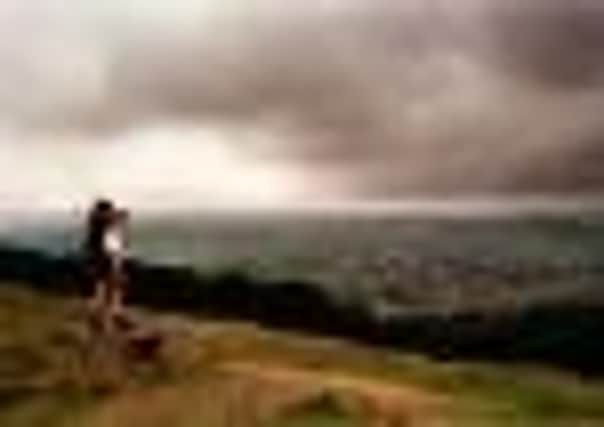Ben Stafford: Politicians must make natural choice to preserve our countryside treasures


There are trees, I suppose – a few London planes sweating and peeling in the heat – and plenty of rather scruffy pigeons waiting for the tourists’ leftovers, but it’s no wildlife hotspot. And while there are iconic architectural landmarks to enjoy, much of the landscape – and for miles around – is glass, chrome and concrete, far removed from rolling hills and wooded valleys.
It isn’t a patch on the breathtaking sight at Surprise View near Otley, just a few miles from my parents’ home in Leeds, where a great sweep of countryside opens out before you, so you can drink in the Washburn Valley, Lower Wharfedale and even the distant towers of York Minster if the day is clear.
Advertisement
Hide AdAdvertisement
Hide AdSo it felt a little incongruous to find myself in the QEII Conference Centre, listening to a soundtrack of birdsong and rustling leaves, and waiting for a phalanx of Government Ministers to unveil their new environment policy – The Natural Choice.
Now if I wanted to be cruel, I’d say that title makes me think of some worthy probiotic yoghurt, or perhaps an organic smoothie that definitely constitutes one of your five a day. But in fact I’m going to be kind, because there’s actually lots of good stuff in The Natural Choice, the first Government White Paper on the natural environment for over 20 years.
I mentioned in these pages before Christmas that we at the Campaign to Protect Rural England had serious questions about how ambitious this environmental vision would be, and what difference it would make.
Happily, there’s much in there to inspire anyone who loves the countryside, wildlife and the precious green spaces in our great Yorkshire towns and cities.
Advertisement
Hide AdAdvertisement
Hide AdFor a start, there’s recognition up front of the intrinsic value of nature. This is an interesting one because, the week before The Natural Choice, we got the National Ecosystem Assessment.
Now if The Natural Choice is a soothing smoothie, the non-too jauntily named NEA sounds like sure-fire indigestion for even the hardiest stomach and, at around 2,000 pages, there’s a lot of it to chew. But let’s persevere, because the NEA has done something ground-breaking – it has measured the economic value of the services nature provides us.
It suggests that our ecosystems, properly looked after, could be worth many billions a year, ranging from the health benefits we derive from living close to green spaces, through the £430m pollinating insects are worth to our farmers, to the value of wetlands in improving water quality and reducing the impacts of flooding.
This is all great stuff. Nature is often barely valued at all, so this report should help ensure it is not seen as a dispensable luxury in future. But we need to be careful, and that brings me back to intrinsic value.
Advertisement
Hide AdAdvertisement
Hide AdYou and I both know that when we think of the joy we get from the natural world – chancing upon a glittering kingfisher on our local stream or canal, lying back in a meadow hearing nothing but the thrum of insects and the whispering breeze or having our breath taken away by that Surprise View – we don’t calculate it in pounds and pence.
Some things are wonderful and worth protecting just because they are. So yes, let’s make better economic calculations of nature’s worth, but without forgetting that we protect it for its own sake, and not just for its impact on the bottom line.
Back, then, to The Natural Choice, and the heartening things it says about intrinsic value. It says other good things too – there will be new Nature Improvement Areas to protect and improve nature across more of our countryside. Some will be led by government, and others by partnerships of local communities, charities, landowners and others. We are promised more action on the light pollution that draws an insidious veil across starry skies. Communities will be able to work to improve their local landscapes, and there is recognition of the efforts of voluntary groups – and these include many CPRE members – to clear our towns and countryside of unsightly litter.
So, much to celebrate. But every silver lining has a cloud. And here, that is the challenge the Government faces turning rhetoric into reality. It’s a challenge Ministers can certainly meet, but to do so they must show they recognise their critical role in protecting nature; they can’t just leave it to the communities, charities and others that already do so much.
Advertisement
Hide AdAdvertisement
Hide AdAnd it means all of Government getting behind The Natural Choice, not just the Environment Department. In particular, the Department for Communities and Local Government, responsible for planning, must do its bit. The planning system has helped protect much of the natural richness we still have in our towns and countryside, but Ministers are making major changes to it now which, if they get them wrong, could make this natural environment vision impossible to deliver.
After a hopeful week for nature, we wait to see if all of our political masters regard protecting and improving the countryside as the natural choice.
Ben Stafford, from Leeds, is head of campaigns at the Campaign to Protect Rural England.